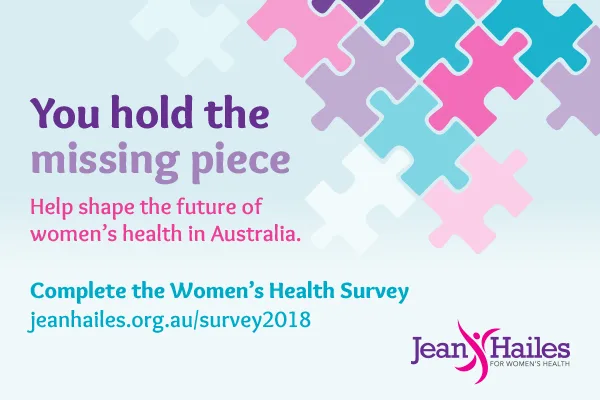We all go through bad days at work; some more and some less. But if you regularly find yourself sitting at your desk crippled by anxious thoughts and on the verge of tears, you are not alone according to a new survey by Jean Hailes for Women’s Health.
“The 18 to 35-year-olds in the survey had the highest anxiety scores, which is telling,” says Jean Hailes for Women’s Health executive director, Janet Michelmore AO.
“Technology and social media is part of that, and they put an enormous amount of pressure on themselves to be ‘ever-ready’ and connected,” says Michelmore.
New research has found negative work environments are associated with poorer mental health, in particular, depressive symptoms.

Eighteen to thirty-five year old women are more prone to anxiety and depression, a Jean Hailes Women’s Health Survey suggests.
A recent review of 59 studies from workplaces across Europe, North America, Australia and New Zealand found that employees who reported job strain, bullying and lack of ability to make work-related decisions were at higher risk of developing depressive symptoms, including stress-related disorders and taking psychologically related sick leave.
Gillian Needleman, psychologist at Jean Hailes for Women’s Health, says not only can depression, sadness and anxiety increase in these environments, but prolonged stress at work can drop your body’s immunity so you’re more susceptible to issues such as colds and muscular aches and pains. It might also result in headaches, problems with concentration, fatigue, difficulty sleeping and even digestive problems.
“There are many things people can do to boost their resilience when they’re in negative environments and under stress”, says Needleman. “This includes making sure you eat nutritious foods throughout the day, get out at lunch time, get some fresh air and a bit of exercise if you can and look for some social support, if possible.”
Getting quality sleep is important and if you need a moment during the day, it’s okay to take five minutes and find a quiet space to just breathe and refocus, says Needleman.

A good night’s sleep plays an important role in your physical and mental health.
Not having clarity around roles or responsibilities and not being able to make decisions or feel valued at work will affect your mental health, says Needleman. “If this is you, it’s helpful to find someone you trust or a health professional to talk to about this,” she says. “They may provide insight and thoughts on specific ways you can deal with your stress and the environment.”
Needleman says if your work environment is negative, think about ways that you might be able to get relief or help. Even identifying a few small but achievable steps to improve your workplace might help your situation.
Want to help shape the future of women’s health? Spend just 10 minutes completing the Jean Hailes for Women’s Health survey and create a healthier future for all women.

Jean Hailes 2018 Women’s Health Survey
-scaled.jpg?fit=900%2C600)


